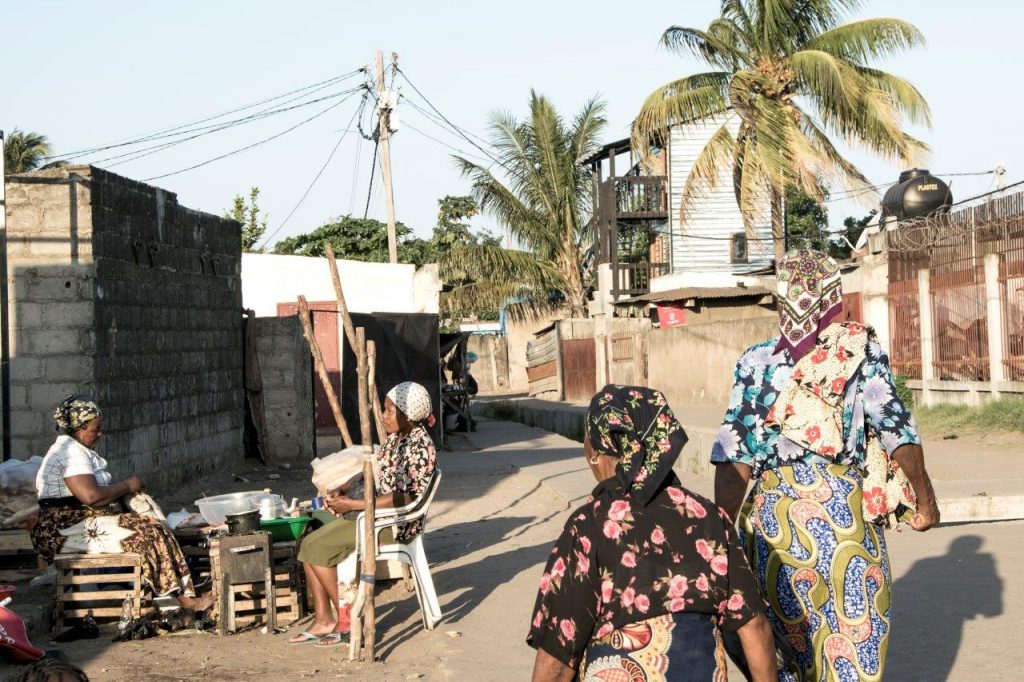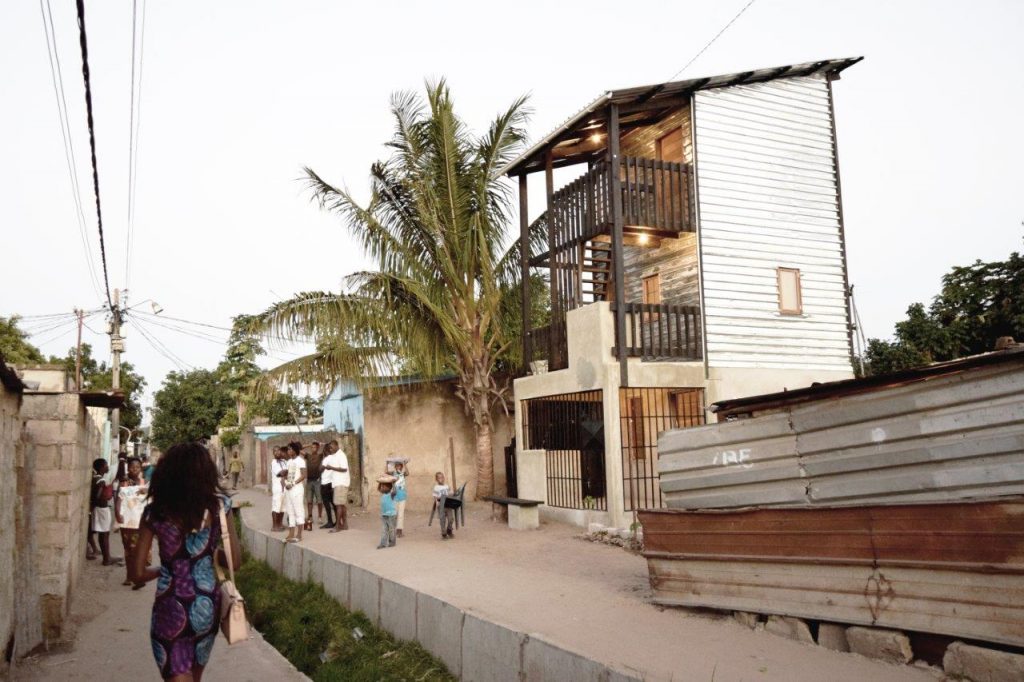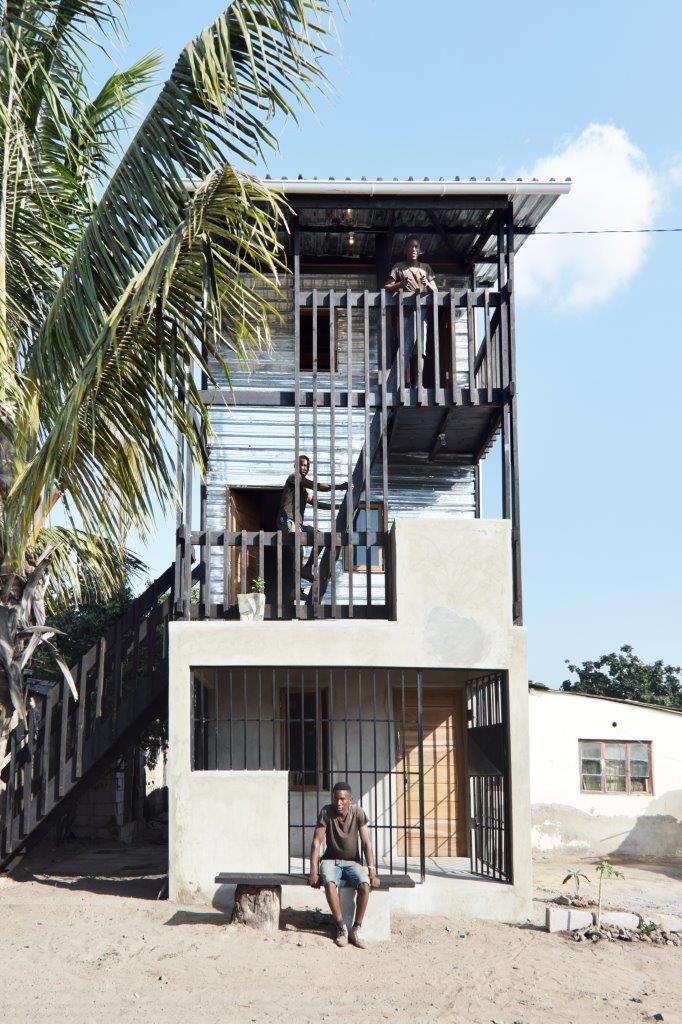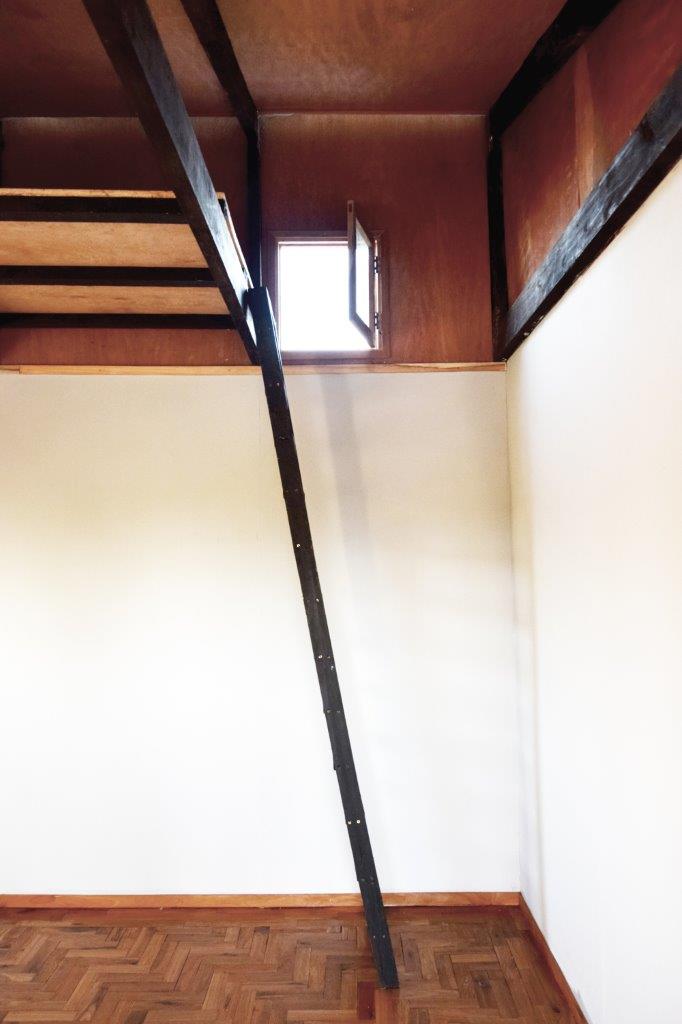
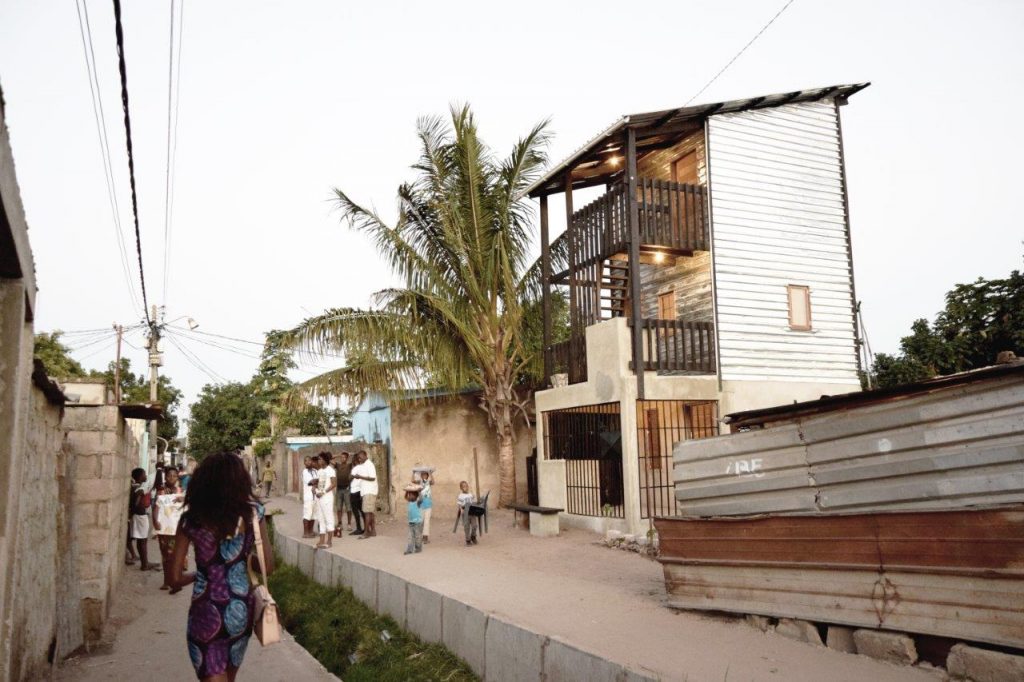
Casas Melhoradas is an applied research project on housing for low income groups in the informal settlements of Maputo, Mozambique with a three-fold focus: 1) developing alternative construction methods to improve the quality and decrease the cost of housing; 2) developing housing typologies that utilize space and infrastructure more economically to initiate a more sustainable urban development; 3) engaging in construction of affordable rental housing through public and private partnerships to scale up the impact of the project.
The project develops semi-industrial building component production, and is experimenting with prefabricated element construction, produced locally in Maputo’s informal settlements, based on the local capacities. Thereby the project seeks to limit the waste of resources, reduce the price, reduce the time of the construction process and improve the quality of housing.
The project develops multi-story housing typologies, rooted in the local socio-economic and cultural conditions, seeking to utilize space more efficiently, in order to contain the urban sprawl and use the infrastructure more economically. Thereby, the project seeks to facilitate the development of more compact urban environments in the informal settlements and make future infrastructure investments more cost-effective. On this background, the project seeks to improve mobility, improve the access to infrastructure and economize space.
The developed housing models, building techniques and production methods are tested in full scale in collaboration with local builders, through construction of test houses and are subsequently evaluated to identify the most appropriate solutions for low-income groups in Maputo.
Phase 2 was built in 2015 in Maxaquene A, an informal settlement close to the center of Maputo. The prototype consists of a heavy first floor concrete base with a light two-storey wooden house on top. The prototype is a modern interpretation of the traditional “Casa de Madeira e Zinco” and “Casa de Blocos”. Based on the experiences of phase 1, the prefabricated wooden element structural system was optimized and used similarly; produced in a local carpentry workshop using sustainable wood. The project features a suspended plywood ceiling containing insulation foil as well as mosquito net protected natural ventilation openings, securing comfortable indoor climate. A building system developed in Brazil’s favelas (vigotas e abobadilhas) was used for the concrete floor separating the first and second floor. The vertical outdoor spaces between the street and the house forms a social transition zone between inside and outside, where there is room for cooking and interacting with passers-by. The rectangular volumes on the verandas contain gas stoves. The three-story prototype is located in an informal settlement consisting of single-story homes, and thus demonstrates how space and infrastructure can be used more efficiently.
The project was carried out in collaboration with KADK – The Royal Danish Academy of Fine Arts Schools of Architecture, Design and Conservation and Architects without Borders – Denmark.
